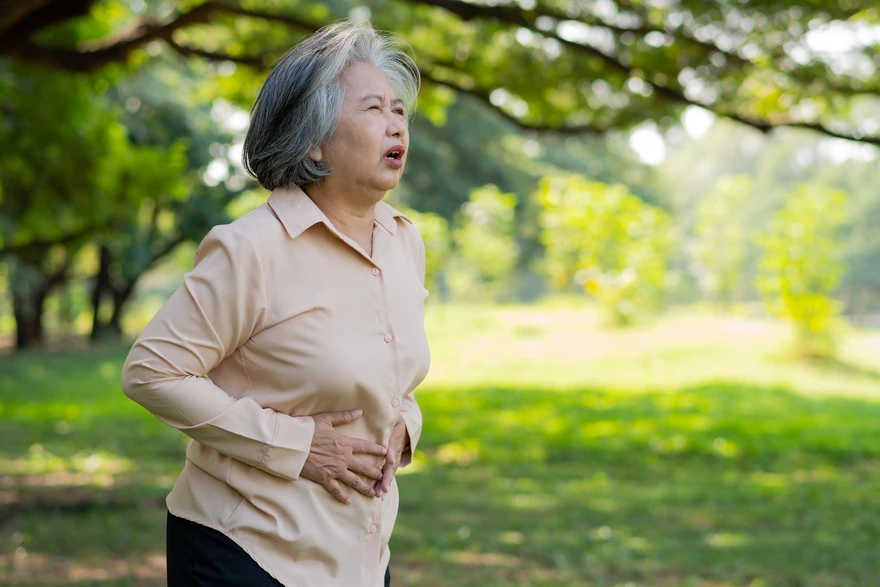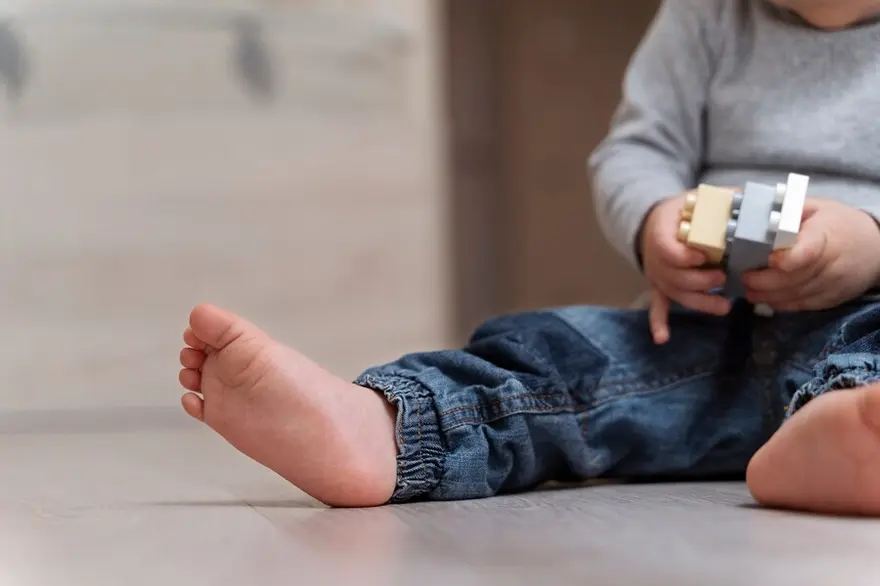Preventive Healthcare
Managing Diverticulitis: Dietary Strategies and Lifestyle Tips for Relief!
1613 Views
0

Introduction
Diverticulitis can be challenging, but with the right nutritional strategies and lifestyle adjustments, you can effectively manage your symptoms and improve your quality of life.
In this article, we'll explore the ins and outs of diverticulitis, from understanding its symptoms and causes to discussing different treatment options. Whether you are newly diagnosed or looking for ways to better manage your condition, this article aims to provide you with the knowledge you need.
What is Diverticulitis?
Diverticulitis is a condition in which the small pouches called diverticula present in the wall of the colon (large intestine) in the digestive system become inflamed or infected. Diverticulitis causes symptoms such as abdominal pain, fever, and intestinal changes.
What are the Different Types of Diverticulitis?
Diverticulitis types can be categorized as follows:
- Acute diverticulitis occurs suddenly but resolves quickly with treatment. Chronic inflammation can occur several times. This may happen because one of your episodes has not completely healed. Or it may be due to another chronic colon disease.
- Chronic diverticulitis may develop due to a previous episode you had hasn't healed completely, or it may be due to another chronic colon disease.
- Uncomplicated diverticulitis this is the most common type of diverticulitis. It easily gets better with the right treatment.
- Complicated diverticulitis may involve complications such as abscess formation, perforation, or fistula formation.
What are the Symptoms of Diverticulitis?
Diverticulitis is more common in women aged 50 years and above compared to men. However, there are no separate diverticulitis symptoms in females.
Diverticulitis symptoms can vary from person to person but commonly include:
- Abdominal pain, particularly in the lower left side
- Fever
- Nausea
- Vomiting
- Changes in bowel habits
- Abdominal tenderness or bloating
What are the Causes of Diverticulitis?
Diverticulitis occur when pouches of tissue form along the digestive tract, typically in the large intestine or colon. These pouches (diverticula) can become inflamed or infected when their openings become blocked by faeces or partially digested food.
However, there is no exact single reason that can be termed as diverticulitis causes, it is believed to be related to factors such as:
- Age: Due to aging, your muscles and tissues naturally weaken, making your colon more prone to developing diverticula.
- Genetics: Genetic factors may be one of the diverticulitis causes. You can inherit diverticulitis from your family members.
- Diet: Your dietary choices can be the hidden reason behind diverticulitis causes, particularly a low-fibre diet, can contribute to the development of diverticulitis by causing constipation and increasing pressure in your colon.
- Lifestyle: Factors such as obesity, smoking, and lack of physical activity can increase your risk of diverticulitis.
- Obesity: Excessive body weight, particularly around your abdomen, can increase a pressure on your abdominal cavity, leading to the formation of diverticula.
- Smoking: Smoking is associated with an increased risk of diverticulitis, it can be possibly due to its effects on colon motility and inflammation.
- Lack of Physical Activity: Your sedentary lifestyle can contribute to constipation and sluggish bowel movements, which may increase your risk of diverticulitis by becoming one of the leading diverticulitis causes.
What are the Complications of Diverticulitis?
Complications of diverticulitis can include:
- Abscess formation
- Perforation of the colon
- Fistula formation (abnormal connections between organs)
- Intestinal obstruction
- Peritonitis (inflammation of the abdominal lining).
How is Diverticulitis Diagnosed?
It's important to diagnose diverticulitis because if left untreated, it can lead to the above-mentioned complications.
In diagnosing diverticulitis, healthcare providers typically use a comprehensive approach, including:
- Medical History Review: Your healthcare provider will ask about your diverticulitis symptoms, medical history, and any risk factors associated with diverticulitis. This information can help guide the diagnostic process and assess the severity of your diverticulitis.
- Physical Examination: A physical examination may be conducted to assess your abdomen for tenderness, bloating, or other signs of diverticulitis. Your healthcare provider may also examine your abdomen with the help of a stethoscope to detect any unusual sounds.
- Blood Tests: Blood tests such as full blood (CBC) can be performed to test the signs of infection, such as elevated white blood cell counts. Abnormalities in blood test results can provide valuable clues about the presence and severity of diverticulitis.
- Stool test: A stool test is conducted for infection screening, including Clostridium difficile (C. diff).
- Urine test: A urine test is performed to detect any urinary tract infections.
- Imaging Studies: Imaging studies, such as computed tomography (CT) scans or ultrasound, are commonly used to visualize the colon and detect any abnormalities such as inflammation or infection. CT scans are particularly useful for diagnosing diverticulitis and assessing its severity.
- Colonoscopy: In some cases, a colonoscopy may also be recommended to directly visualize the colon and rule out other conditions that may mimic diverticulitis, such as colorectal cancer or inflammatory bowel disease. During a colonoscopy, a flexible tube with a camera on the end (endoscope) is inserted through the rectum and into the colon, for a detailed examination of inside the colon.
How is Diverticulitis Treated?
Diverticulitis treatment depends on the severity of your diverticulitis symptoms and any diverticulitis complications you may have. In mild cases, your diverticulitis treatment plan may include dietary changes, rest, and medication to relieve symptoms. However, if diverticulitis symptoms are severe or complications arise, hospitalization and surgery may be required.
Diet and Diverticulitis:
Your diet plays a crucial role in managing diverticulitis symptoms and preventing flare-ups. Making dietary changes such as increasing your fibre intake, staying hydrated, and avoiding certain foods can help in reducing the diverticulitis symptoms and promoting digestive health.
Dietary Changes:
Constipation is one of the diverticulitis causes, polyps are formed due to continuous excessive muscular contraction for a long time, in an effort to move small and hard stools. Increasing your fibre intake can help increasing the bulk and soften your stool, promoting regular bowel movements, and thus reducing the risk of diverticulitis flare-ups.
Diverticulitis diet includes high-fibre food such as:
- Fruits
- Vegetables
- Whole grains
- Legumes
Additionally, staying hydrated by increasing your water intake and avoiding alcohol and caffeine consumption can help regulate bowel function and prevent constipation.
Medication:
In some cases, your healthcare provider may prescribe the below mentioned medications which can help in managing symptoms of diverticulitis.
This may include:
- Antibiotics to treat infection
- Pain relievers to reduce discomfort
- Antispasmodic medications to reduce abdominal cramping
It is important to follow the recommendations suggested by your healthcare professional for the medications used and inform them in case of side effects or concerns you may have.
Surgery for Diverticulitis
Surgery for diverticulitis may be necessary in cases of recurrent or severe diverticulitis symptoms, complications such as abscesses or fistulas, or when other treatments have been unsuccessful. Surgical options may include bowel resection to remove the affected portion of the colon or procedures to drain abscesses or repair fistulas.
Home Remedies for Diverticulitis
In addition to dietary changes and medication, certain home remedies may help in reducing your symptoms of diverticulitis. Applying heat packs to the abdomen, practicing relaxation techniques such as deep breathing or meditation, and getting regular exercise can help relieve diverticulitis pain and promote overall well-being.
How to Prevent Diverticulitis?
Although it is not possible to completely prevent diverticulitis, but by adopting a healthy lifestyle and making dietary changes can help reduce the risk of developing diverticulitis and prevent diverticulitis flare-ups. The main components of preventing diverticulitis are eating a high-fiber diet, staying hydrated, maintaining a healthy weight, and exercising regularly.
When to See a Doctor?
If you experience symptoms of diverticulitis, such as abdominal pain, fever, or changes in bowel habits, it is important to see a doctor for an immediate evaluation and diagnosis. Seeking medical attention quickly can prevent problems with diverticulitis.
Conclusion
Managing diverticulitis requires a balanced approach, which includes dietary adjustments, lifestyle changes, and medical support. Understanding its signs, causes, and treatments empowers you to take charge of your well-being. Consult your healthcare provider for a personalized guidance. With Metropolis Labs offering convenient in-house blood sample collection, accurate diagnostic tests, and informative blogs, you have the tools to navigate diverticulitis treatment confidently. Contact Metropolis Labs for more information.













1701259759.webp)









 WhatsApp
WhatsApp